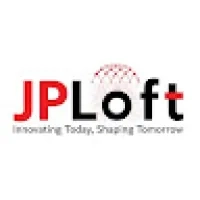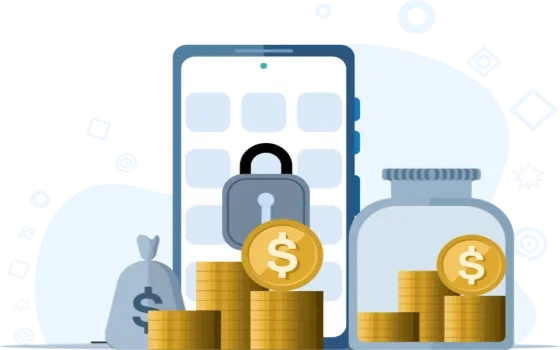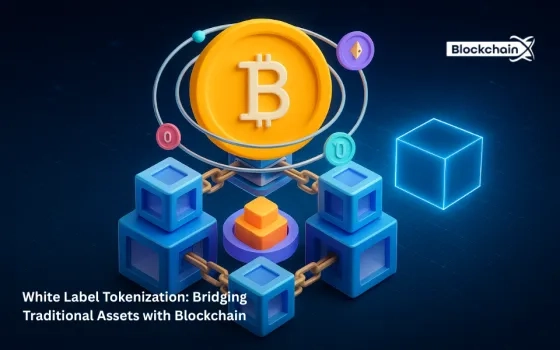The advancement of inventions that led to Web3 and blockchain has greatly changed the business environment. As stated by Forbes market research, in 2023, the total blockchain market is estimated to be around USD 170 billion; however, by 2030, it is expected to rise to USD 450 billion. Thus, the demand for better and more transparent safety solutions has become an essential aspect of increasing internet security, along with the constantly developing deceiving tendencies.
At first, blockchain technology was primarily focused on cryptocurrency, but it is now being used in many other sectors. With its high security and advanced privacy features, its demand is growing in both the private and public sectors. Government bodies worldwide are accepting the concept of digital currency exchange and showing interest in new crypto technology.
In this blog, we will look into the benefits of blockchain technology, major trends, and how partnering with an expert blockchain development company can help you enter the emerging market of blockchain technology, upgrading your business to the next level.
Benefits of Blockchain Technology
High Security and Privacy
Entering sensitive and important data on an anonymous website or application is risky, but blockchain technology can help you with this problem. Blockchain converts your records into coded hashtags that cannot be changed or altered and are encrypted from end to end, which makes it the best option to prevent unauthorized access to sensitive information and fraud.
Enhanced Transparency
Before blockchain, organizations kept separate databases. The introduction of blockchain changed the scenario of data storage. It uses a distributed ledger, in which it stores transactions and ledger data identically in multiple locations across network nodes all over the world. Only the users who are authorized to view the information are allowed to see it, providing full transparency.
Instant Traceability
Blockchain produces an audit trail that records the origin of assets at each step throughout the full transaction process. This helps provide confidence to businesses worried about human or environmental rights related to their goods, as well as those bothered by imitation and scams.
Increased Efficiency and Speed
The traditional transaction recording system is time-consuming, prone to human errors, and less secure. Introducing blockchain into this system will streamline the process and increase the safety and speed of transactions to the next level.
Blockchain stores transactional data and information on network nodes, which reduces the stress of maintaining multiple ledgers and, hence, decreases the time consumed for clearing settlements.
Automating Process
‘Smart contracts’ automate the process of transactions, which increases your transactional process and boosts your efficiency. It automatically triggers the next steps once the predetermined specifications are met during the process.
The smart contract system doesn’t require human intervention and does not rely on a third party to verify contract term fulfillment.
Top Trends in Blockchain in 2024
In the 21st century, blockchain technology has emerged as one of the most in-demand and popular technologies, and various trends have recently appeared.
Growing Decentralized Finance
Decentralized finance (DeFi) is the term for the new generation of financial services based on blockchain and Web3 technology. This financial service facilitates peer-to-peer commercial activities, avoiding third-party institutions’s charges. DeFi is a secured and verified mode of financial transaction that will unleash the possibilities of the digital economy.
Smart contracts are self-executable contracts that encode every part of the information in the form code. These contracts are stored on different blocks on the network, which eventually connect, forming a chain of data-filled blocks.
Blockchain 4.0
Blockchain 4 is a new generation of blockchain technology. It is a useful environment for businesses to develop and execute apps that aim to commercialize the technology fully. A company that does not have any expertise in blockchain but has an innovative idea can also create and run commercial Dapps on Blockchain 4.
Blockchain 4 can help companies integrate all their operations into self-recording, secure ledgers that are also highly encrypted and trustworthy. It enhances security, increases transaction speed, and can operate parallelly with other blockchains.
IoT and Blockchain
Blockchain technology offers a decentralized and secured framework for analyzing and keeping databases collected from the Internet of Things (IoTs). In the future, blockchain will be one of the most important technologies used for third-generation security purposes.
Blockchain-backed IoT solutions can provide transparent and efficient operational management for smart cities. This will guarantee continuous interaction between users, organizations, and government bodies.
Non-Fungible Tokens (NFTs) For Businesses
NFTs are becoming important in Web 3.0, which is seen as the future of the Internet. This new web depends on blockchain technology and uses NFTs and cryptocurrencies for transactions. NFTs can protect people's online identities without needing physical documents. This means individuals can carry their documents digitally when they require verification.
Businesses need extra security to store important information. NFTs can help secure and prevent data duplication and manipulation, making them valuable for providing authentic data. For businesses looking to explore these benefits, partnering with an NFT marketplace development company could be a strategic move.
Blockchain-as-a-Service
BaaS stands for Blockchain-as-a-Service, where cloud providers offer tools and frameworks for businesses and developers to build, deploy, and manage blockchain applications without setting up their blockchain infrastructure.
BaaS platforms simplify the process of creating blockchain applications by providing ready-made blockchain networks and development tools. This means any business can create and use blockchain applications without needing expertise in setting up nodes or maintaining the network. It saves resources and improves the applications' availability and flexibility.
Artificial Intelligence With Blockchain
In the digital world, combining blockchain technology with AI is seen as a perfect match. AI processes data quickly and thoroughly, adding intelligence to blockchain-based networks so they can understand and analyze data faster.
Blockchain enhances AI by allowing it to access large databases from both inside and outside businesses, improving scalability and providing more appropriate understanding. It also provides transparency and trustworthiness in data sharing and usage, creating a secure marketplace for data.
Using blockchain with AI helps solve problems like security and transparency. By reducing threats and improving security in AI applications, businesses can confidently use AI while maintaining high levels of protection through cryptographic guarantees.
Interoperability
Blockchain interoperability means the ability of different blockchain networks to work together smoothly. This means they can communicate, collaborate, and exchange data or value, including cryptocurrencies and smart contracts.
Interoperability helps remove barriers and encourages wider adoption of blockchain technology. It allows data and assets to move smoothly between various blockchain platforms and protocols.
Interoperability also enables users to access data from multiple blockchains within a single application, which opens up possibilities for creating new applications using current frameworks.
Conclusion
Blockchain technology has quickly grown beyond its beginnings in cryptocurrency. Its fundamental benefits, such as improved security, openness, and speed, are changing how companies handle data and protect digital identities. For businesses looking to capitalize on these possibilities, working with an Ethereum development company can be important. Such agreements allow Ethereum's rich environment and smart contract powers to build personalized blockchain solutions suited to specific business needs.
Whether improving organizational efficiency, ensuring data security, or exploring new income streams through NFTs, Ethereum development companies play a crucial role in managing the difficulties of blockchain usage and maximizing its transformative potential. As the blockchain world continues to expand, adopting these trends and working with expert coders will be important for staying competitive and driving innovation in the digital economy.















Comment
The blog effectively highlights how Blockchain revolutionizes business environments, enhancing security, transparency, and operational efficiency. The projected growth in the blockchain market underscores its increasing relevance across sectors, beyond just cryptocurrency. Exploring trends like DeFi, Blockchain 4.0, and NFTs showcases its diverse applications, while emphasizing the importance of partnering with expert blockchain development companies for leveraging its transformative potential. As businesses navigate towards a digital future, integrating blockchain solutions will be pivotal for staying competitive and driving innovation.
very nice article blockchain trends